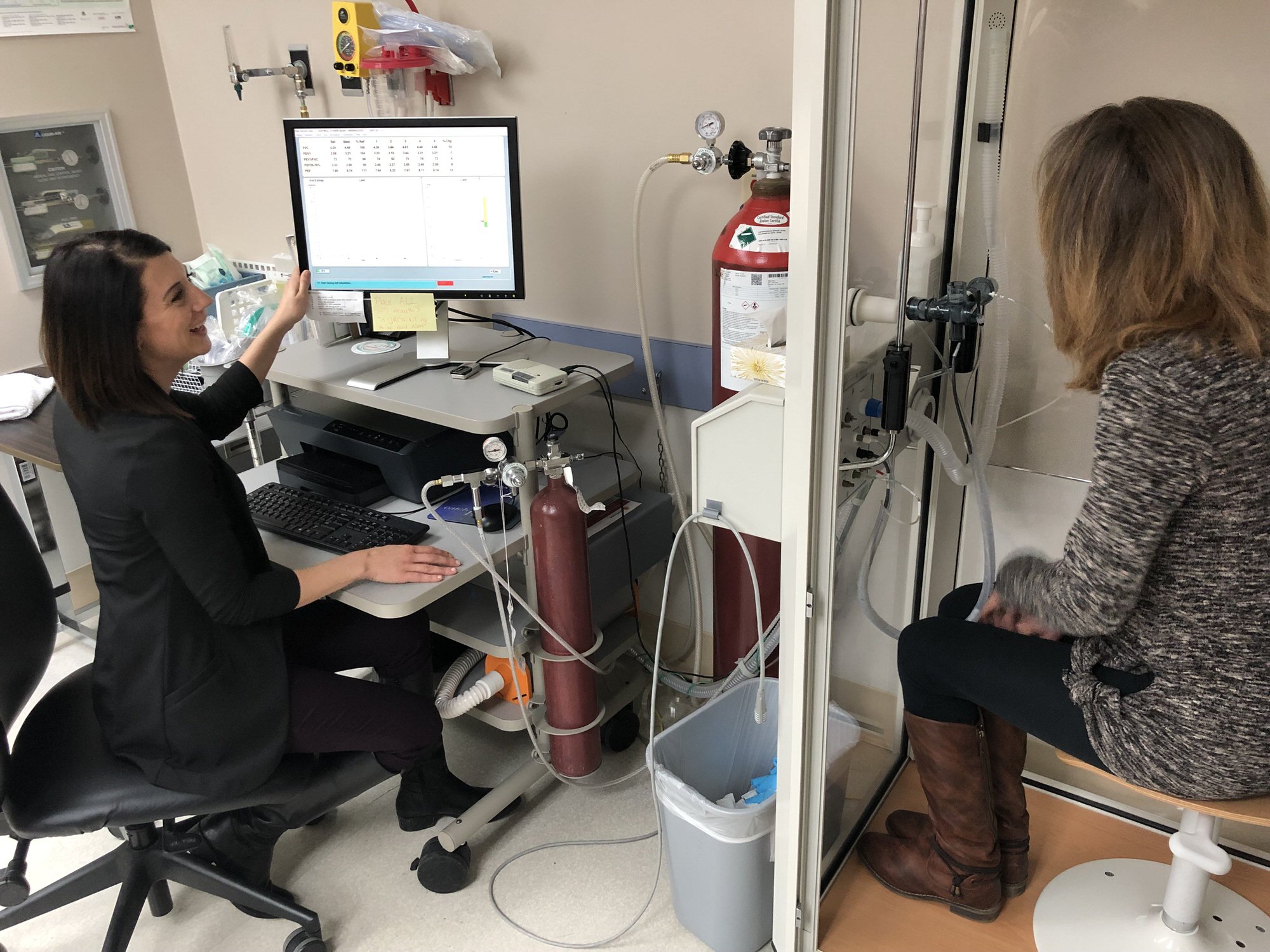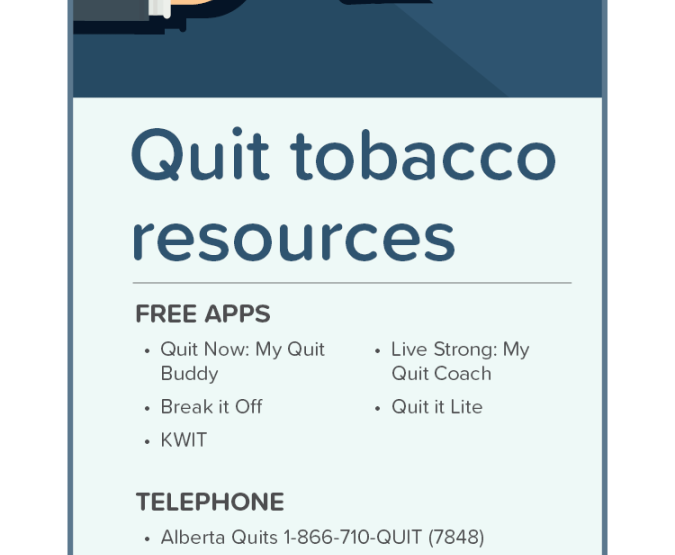The struggle to butt out
Respiratory Clinical Lead Aaron Jabs shares her journey to quit smoking

January 23, 2019
By Tessia Verbeek, Senior Advisor, Communications, Covenant Health
Smoking is the leading cause of premature death in Canada. And though much progress has been made in reducing tobacco use, quitting is tough—even for healthcare workers who know better.
In fact, research shows that people are more likely to get addicted to tobacco, after just one try, than any other substance. And for the 18 per cent of Albertans who smoke, it may take up to 30 tries to quit before it sticks.
“We don’t see tobacco the same way as other addictions,” says Aaron Jabs, Respiratory Clinical Lead at the Grey Nuns Community Hospital. “Many people don’t understand how hard it is to stop smoking.”

Aaron is very familiar with the challenges people face to quit smoking. Standard procedure calls for patients to try to quit smoking before surgery, because being smoke-free leads to better recovery and outcomes. Aaron's team meets with patients for pre-surgical screening to provide lung function tests and tobacco education. She also delivers tobacco education throughout the hospital and helps people build personalized plans to stop smoking during their hospital stay and at home.
Aaron also smoked cigarettes for 15 years.
“The first time I tried a cigarette was in junior high,” she says. “I didn’t even like it! But by high school, I smoked every day.”
She remembers how upset her mom felt when she found out. So Aaron quit for the first time at 18 years old. She lasted eight months.
Quit tobacco resources
Free apps
- Quit Now: My Quit Buddy
- Break it Off
- KWIT
- Live Strong: My Quit Coach
- Quit it Lite
Telephone
- Alberta Quits 1-866-710-QUIT (7848)
- Text ABQUITS to 123456
Recommended reading
The easy way to quit smoking by Alan Carr
For more information visit AlbertaQuits.ca.

“I was proud to be the first of my many ‘smoking’ friends to quit,” Aaron recalls. “Then I started dating a guy who smoked. I’d have a cigarette on the weekend, and when I tired of being that person who bums smokes, I bought my own pack. Before I knew it, I was smoking again.”
Aaron believes her history as a smoker is an advantage that helps her relate to her patients. And, like many of the patients she sees, her motivation to quit for good was an upcoming surgery. At the time, she was working in the Intensive Care unit at the Grey Nuns Community Hospital—the same hospital where her surgery was scheduled.
“The surgeon advised me to quit before surgery, as it makes a big difference for recovery,” says Aaron.
“I thought about quitting all the time—all smokers do, for various reasons—and I promised him I would.”
Despite her own nagging thoughts, knowledge and experience, Aaron procrastinated. As her surgery date approached, she borrowed an audiobook from a friend: The Easy Way to Quit Smoking by Alan Carr. Aaron listened to it in her car over two weeks, with the goal of smoking her last cigarette by the time the book finished.
“I wasn’t convinced I could stop, but I did,” says Aaron. “I knew I’d feel embarrassed going into surgery as a smoker. Of course, my health was a factor, but the truth is, I really didn’t want to face my co-workers and surgeon and admit I hadn't quit.”
Feelings of shame and guilt are extremely common for people looking to quit tobacco. In fact, Aaron says, many people refuse to tell others when they’re trying to quit, just in case they don’t succeed.
“Physicians and healthcare professionals struggle to quit smoking too,” says Aaron. “It’s the reality of addiction.”
While managing tobacco withdrawal is challenging, Aaron’s advice is simple: try, keep trying, and don’t be hard on yourself.
“It takes practice, it takes time, and you have to find your way,” she says. “There are lots of quitting medications out there, and what works for one person might not work for another. The important part is to keep trying, identify your stressors and find the support that works for you.”
One tactic Aaron does not recommend is switching to cannabis or other smoking products, including e-cigarettes, vaporizers or hookahs.
“If you’re not inhaling good, clean air, there is harm,” she says.
While Canada has done an excellent job reducing smoking rates, there is an increase in electronic smoking—particularly with youth.
Aaron adds, “There are many false claims with e-cigarettes, like ‘cartridges only contain water vapour’; but we know there can be anywhere from 15 to 2,000 different chemicals in that smoke. It’s a much finer particle that penetrates your lung tissue, and we don’t yet know the impact of long-term use.”
Fortunately, there are many proven resources to help people quit. They include nicotine replacement products, oral medications, coaching and even an eight-day residential tobacco treatment program.
“Challenge yourself for even one day to not smoke,” suggests Aaron. “You will get there and it will be the best thing you ever do for yourself.”